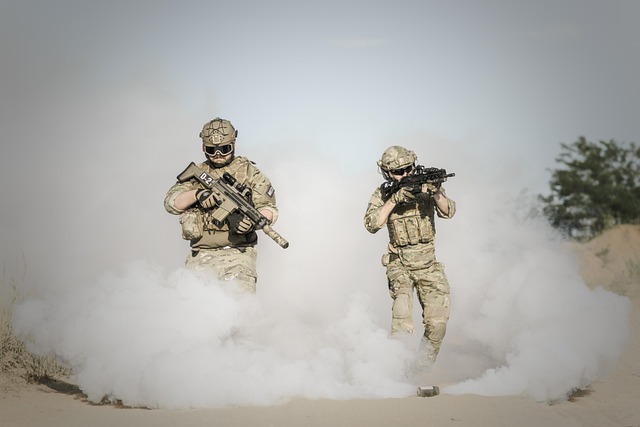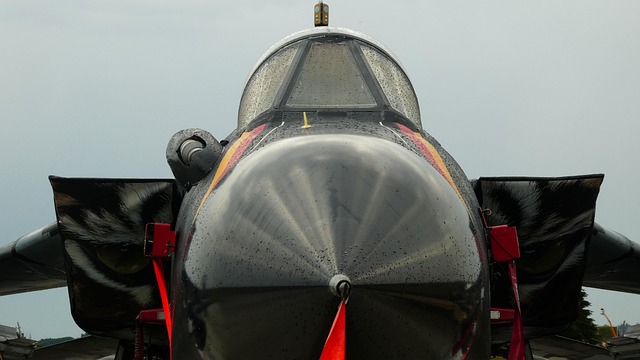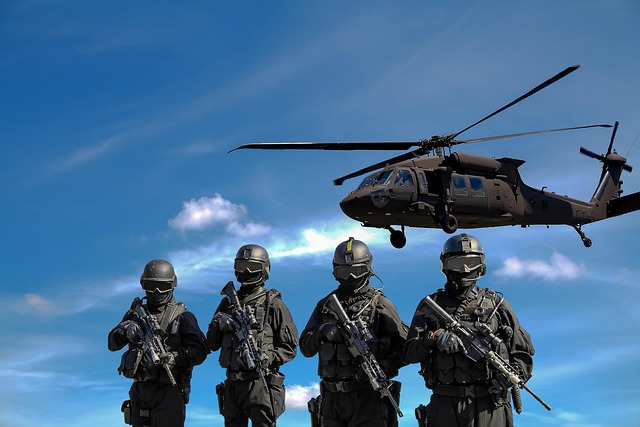The US Army Special Forces prioritize mental toughness and resilience as key differentiators in their operations. With rigorous training and unique strategies, they cultivate a mindset that embraces adversity and maintains composure under extreme stress. Effective communication, utilizing advanced technology, is vital for mission success, fostering camaraderie among diverse teams operating in unpredictable environments. These distinct qualities enable the Special Forces to excel in challenging special operations, setting them apart from other military units.
In the demanding world of the US Army Special Forces, effective leadership is paramount. This article delves into essential skills required to navigate high-pressure missions with success. From cultivating unwavering mental toughness – crucial for resilience in extreme environments – to mastering communication techniques that forge unbreakable bonds, these strategies empower SF leaders. Additionally, it explores strategic decision-making under uncertainty and building adaptability, ensuring teams are prepared for any challenge, reflecting the core competencies needed by US Army Special Forces personnel.
- Cultivating Unwavering Mental Toughness in SF Team Leadership
- – Exploring the significance of mental resilience and its impact on high-pressure operations
- – Strategies for building a robust psychological foundation within the team
- Mastering Communication to Foster Cohesion in Extreme Environments
Cultivating Unwavering Mental Toughness in SF Team Leadership

In the high-pressure world of US Army Special Forces, cultivating unwavering mental toughness is not just a skill—it’s a necessity. Green Berets operating in diverse and often hostile environments must possess the resilience to endure physical fatigue, mental strain, and constant ambiguity. Building this strength requires rigorous training that challenges individuals both physically and mentally, pushing them beyond their perceived limits. It involves developing a mindset for special ops that embraces adversity as an opportunity for growth rather than a barrier.
The ability to maintain focus under extreme stress, make swift decisions in uncertain situations, and adapt to sudden changes is crucial. Special operations intelligence requires an unwavering commitment to excellence, even when operating in remote, top-secret installations. Mentally tough leaders inspire their teams to achieve peak performance, fostering an environment where resilience becomes a shared trait. This unyielding determination has been proven essential during missions in Iraq and other global hotspots, demonstrating the vital role of mental toughness in achieving success on the most demanding special operations.
– Exploring the significance of mental resilience and its impact on high-pressure operations

Mental resilience is a cornerstone for Special Forces teams operating under extreme stress and in high-pressure environments. The US Army Special Forces, renowned for their covert operations and strategic missions, demand individuals capable of withstanding immense physical and psychological demands. These operatives frequently encounter situations where they must maintain composure amidst chaos, making mental fortitude an indispensable skill. Resilient soldiers can quickly recover from setbacks, adapt to unforeseen challenges, and stay focused despite prolonged periods of stress, which are common in special ops combat.
Building this resilience involves rigorous training regimens that push individuals to their limits, mimicking the intense conditions they might face on secret military bases or during stealth missions. Tactical gear for soldiers plays a crucial role in enhancing their ability to endure, protecting them from physical ailments while enabling them to execute complex maneuvers. Special forces soldier skills, honed through years of specialized training, further contribute to their mental resilience, ensuring they can navigate intricate tactical scenarios with calmness and precision, leaving no room for error when every second counts.
– Strategies for building a robust psychological foundation within the team

Building a robust psychological foundation is paramount for any Special Forces team, fostering an environment where soldiers can perform at their peak during high-pressure situations. The US Army Special Forces, known for their exceptional operational capabilities, employ unique strategies to strengthen this aspect of their team dynamics. One key approach involves special operations tactics and techniques that promote mental resilience and camaraderie. Regular psychological profiling assessments help identify individual strengths and weaknesses, allowing for tailored support and training. By addressing potential psychological barriers, such as stress management and trauma mitigation, teams can enhance their overall readiness.
In addition to these methods, effective communication and trust-building exercises play a crucial role. Special Forces often engage in special ops deployment simulations that mimic real-world scenarios, encouraging open dialogue and fostering a collective mindset. Through these rigorous training regimens, soldiers learn to rely on one another instinctively, knowing their teammates’ strengths and how to support them psychologically. This deep connection builds an unbreakable bond, ensuring the team’s psychological resilience remains intact even in the most challenging missions.
Mastering Communication to Foster Cohesion in Extreme Environments

Effective communication is a cornerstone of successful leadership, especially within the demanding environment of US Army Special Forces. In extreme conditions, where decisions can mean the difference between mission success and failure, clear and concise messaging becomes paramount. Special forces soldiers operate in diverse teams, often separated by vast distances and facing unpredictable challenges, making traditional communication methods less reliable. Therefore, leaders must master various communication techniques to ensure their squads remain cohesive and well-coordinated.
By employing innovative strategies, such as utilizing encrypted radio communications and integrating advanced technology like portable satellite devices (similar to those available on sites like Ultimate Flags), special forces commanders can maintain constant contact with their units. These skills are vital for relaying critical information, coordinating tactics, and fostering a sense of camaraderie among the team members—a key aspect that sets these soldiers apart from regular military units. Just as historical special units in WWII relied on exceptional communication to overcome formidable obstacles, modern-day special forces soldiers must also embrace these competencies to excel in their unique and demanding roles.
The US Army Special Forces emphasize mental toughness and effective communication as cornerstone leadership skills. By cultivating psychological resilience and fostering open, transparent dialogue, SF team leaders can navigate the demanding and unpredictable nature of their missions. These strategies not only enhance individual and collective performance but also ensure the team’s cohesion under extreme pressure, making them invaluable assets in high-stakes operations.
